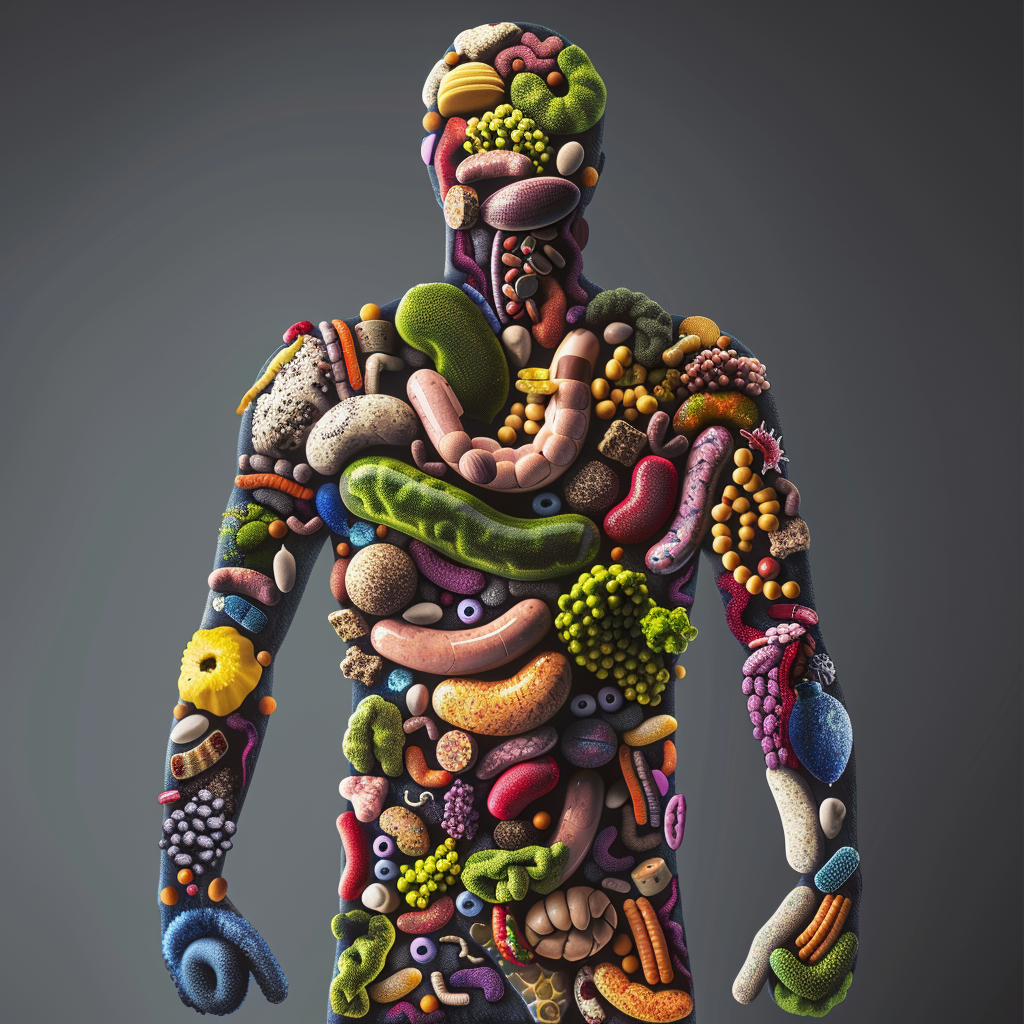Our gut bacteria have a profound impact on our digestion, constitution, immunity, and mental health, and to keep them in balance, it’s important to reduce factors such as poor diet, antibiotic overuse, and stress, and to consume probiotics.
Raise your right hand and then your left. It’s not hard at all. We are the owners of our bodies and we can consciously control all of our actions. But what about controlling what happens inside our bodies? We eat when we’re hungry and sleep when we’re sleepy. If I know I’m having trouble digesting something, I watch what I eat, and if I know I’m prone to weight gain, I exercise to lose weight. It sounds like we’re taking ownership of our bodies and trying to stay healthy. However, there is another underlying cause of why your body can’t digest certain foods and why you’re prone to weight gain. This is because of another master of our bodies: our gut bacteria.
Gut bacteria literally means the bacteria that live in our intestines. There are about 500 trillion of them living in the human body. Of these, there are more than 4,000 species of gut bacteria, amounting to about 100 trillion individuals. That’s more than the total number of cells in your body, and they weigh between 1.3 and 2.3 kilograms. And they produce 50% of the waste we produce from this small amount of weight!

How did all these bacteria get into our bodies in the first place? Gut bacteria are our lifelong companions, starting in the womb and helping to form our bodies. Breast milk contains more than 600 species of bacteria and contains oligosaccharides, which are food for the gut bacteria in an infant’s body. It’s clear that gut bacteria are symbionts that have been with us since the beginning of time. And we continue this long-standing symbiotic relationship by suppressing the bacteria-killing “antimicrobial proteins” in our gut so that our immune system doesn’t kill them. With a temperature of 39 degrees, a constant supply of food, and protection, the gut is a paradise for bacteria.
However, these bacteria don’t just hang out and eat. Gut bacteria are like an organ, and they do some very important things. For starters, they have a huge impact on your nutritional status. They aid in digestion by breaking down sugars, proteins, and fibers that humans can’t break down. They also produce a wide variety of vitamins to help us function. And the acids they produce make the intestines more acidic, which facilitates digestion.
This has a profound effect on our nutritional status and, in turn, our constitution. Gut bacteria are divided into two main phyla: fermicutes and bacteroidetes. According to a 2006 animal study by researchers at the University of Washington, obesity is associated with a higher percentage of fermicutes bacteria. This is because these bacteria convert nutrients into easily digestible sugars and fatty acids, which can be absorbed for more energy, making it easier to gain weight. When the ratio of these two bacteria in the gut was adjusted, it showed promise for improving body composition, so if you’re struggling to lose weight, you might want to blame your gut bacteria.
In addition, gut bacteria play a big role in immunity. They maintain their territory in the gut, and when other bacteria invade, they kill them with bacteriocins and other antimicrobials to keep the gut healthy. They also activate the immune system, which consists of T and B cells, to help eliminate invading bacteria.
But the role of gut bacteria doesn’t end there. Recent studies have shown that gut bacteria also play an important role in their relationship with the brain. This so-called “gut-brain axis” suggests that gut bacteria can affect our emotions, behavior, and even mental health. The fact that people often experience digestive distress during stressful situations is an example of the close connection between gut bacteria and the brain. This gut-brain axis research has the potential to revolutionize medicine and health care in the future.
Normally, gut bacteria live in the gut as an ecosystem, with bacteria of the same species living in separate colonies and maintaining their own proportions. However, factors such as a poor diet, overuse of antibiotics, aging, and stress can throw this ecosystem out of balance. This can lead to an increase in the proportion of harmful bacteria, which prevents the vital processes we’ve described above from occurring properly. This can lead to intestinal decay, carcinogen production, diarrhea, and other problems. To prevent this from happening, it”s helpful to reduce the negative factors above and take lactobacilli. It”s worth it to take care of your gut bacteria, another part of your body that”s working silently for you.
 I’m a blog writer. I want to write articles that touch people’s hearts. I love Coca-Cola, coffee, reading and traveling. I hope you find happiness through my writing.
I’m a blog writer. I want to write articles that touch people’s hearts. I love Coca-Cola, coffee, reading and traveling. I hope you find happiness through my writing.